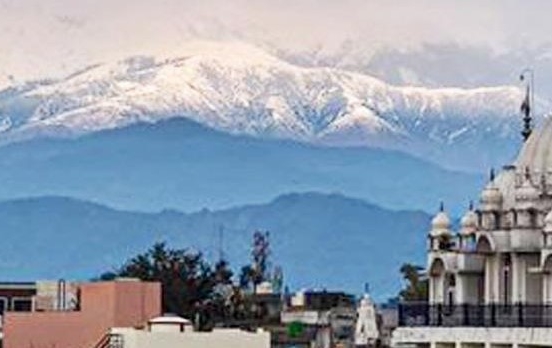| Photo Credit: @parasirishi/Twitter
The Climate, Health & Equity Brief is GMMB’s take on the week’s news on the current impacts of climate change. If you haven’t subscribed yet, you can do so by clicking here. |
|
|
Hot Topic: Just dirty. While the entire world slows to a crawl and strains under the weight of a deadly respiratory pandemic, the Trump Administration continues to undermine the health of the air we breathe. This week, the administration weakened the mercury rule—a 2005 regulation designed to protect us from toxins emitted by oil and coal-fired plants—and refused to impose tighter restrictions on soot pollution.
Weakening the mercury rule has major implications for human health. Mercury is a neurotoxin that, among other risks, has been proven to cause brain cancer in babies. Prior to the adoption of the rule in 2005, U.S. coal plant emissions were responsible for 70 percent of the mercury pollution in our waterways—and our fish. Since its adoption, the mercury in our air has dropped by 90 percent. The decision to roll back the rule is nothing short of a gift to polluters at the expense of human lives.
On the flipside, as much of the world remains in lockdown, we are starting to see what the future could look like if we phase out fossil fuels. Skies in big cities are crystal clear. Waterways normally choked with industrial pollution are showing renewed signs of life. And the residents of Punjab, India can see the majestic Himalayan mountain range from their homes for the first time. We will have choices about how we recover from this pandemic and define our new normal—and our choices at the ballot box will be chief among them.
—Matt & Traci, GMMB |

